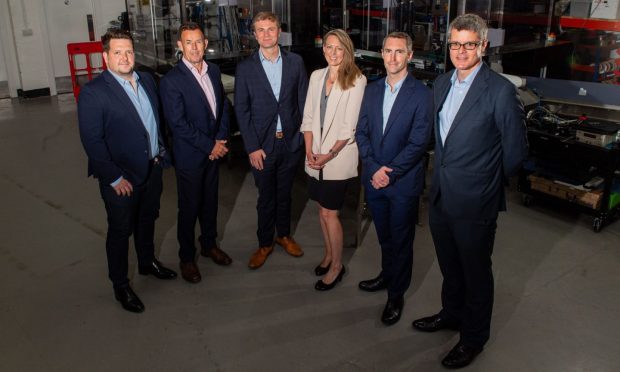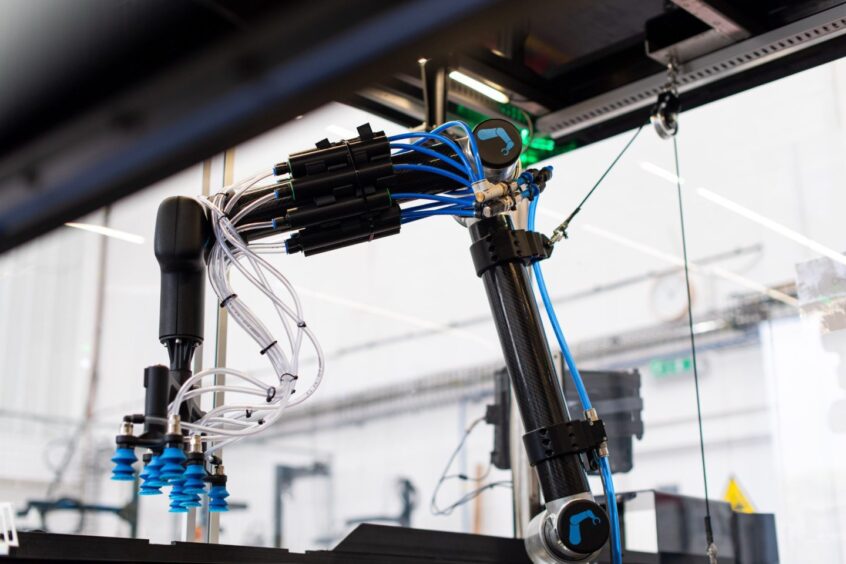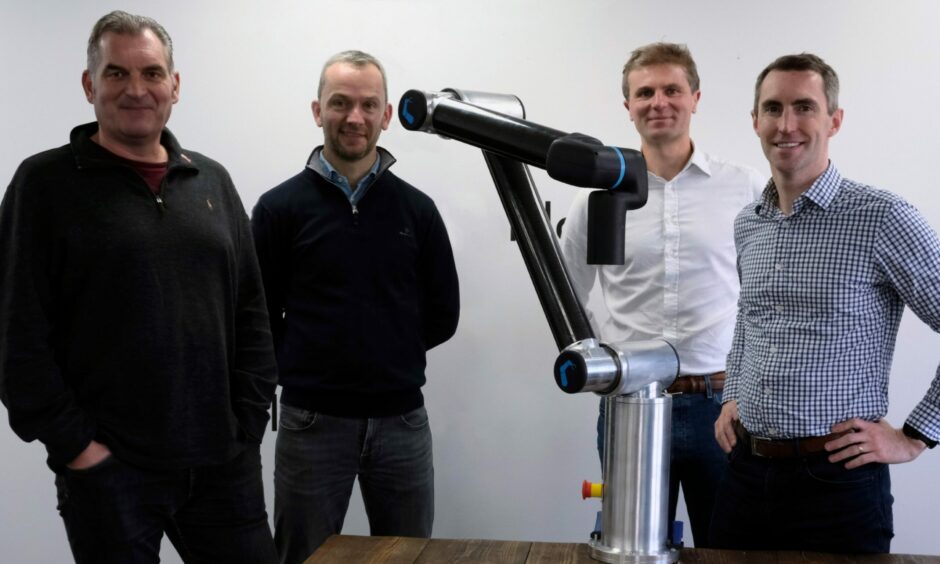Aberdeen-headquartered food packing firm Leap Automation is planning to grow its team following a seven-figure cash injection.
The company, which specialises in AI-enabled robotics for food companies, said the move will help combat labour shortages within the sector.
The Altens-based firm has received a £7.9 million investment, led by £3.5m from the Scottish National Investment Bank and funding from Mercia Ventures and WA Capital.
Leap AI was founded in 2018 by Ben Bamford and Ben Stuart following careers developing and commercialising technology solutions for the energy sector.
Leap AI product and engineering team to grow
Leap AI designs and build robotic systems from the ground up while developing their own software – in a move it says provides a simpler, more cost-effective option for robotic automation.
Its team includes robotics engineers, machine learning specialists, software developers, 3D printing and data specialists.
Speaking about the cash injection, Ben Stuart, Leap AI chief executive, said: “In addition to scaling our operations, the funding will be used to build our product and engineering team.
“Robotics talent is among the most contested in the AI space but our vision of delivering accessible affordable automation for any task has helped to attract world class talent.
“This will be further enhanced by this investment and the support of our investors.”
New product in pipeline
Leap AI’s first product, the PikPak solution, was launched in 2022.
It is capable of packing a wide range of products at effective speeds and is compatible with a wide range of trays and boxes including those used by all key supermarkets and online retailers.
The business is now working towards launching its second product next year.
Ben said: “We are already delivering the first generation of our AI robotic technology performing vital quality control functions for customers.
“Our second-generation AI tech will be encompassed in our next product – an AI enabled robotic platform capable of a wide range of tasks due for release in 2025.”
Ben Bamford, chief technology officer, added: “One of the core blockers to robotic automation to date has been the complexity of robot programming.
“Through the use of generative AI we are making it easy for anyone to teach a robot to do a task with only a few examples.
“This funding will allow us to scale the pace of our technology development, helping us to realise our mission of delivering accessible, affordable robotics for any task.”



Conversation